
It’s
safe to say Neil Gaiman’s star is burning quite brightly. The
talented writer-producer-director found fame with his best selling
novels American Gods, Anansi Boys, and Neverwhere. However, he
became a dominant pop culture figure when he joined the DC Comic
family to create his unique “Sandman” series and introduce
Stardust. Eventually publishing it as a novel, Gaiman proudly
produced the upcoming screen adaptation of the highly acclaimed
novel, STARDUST.
Although he
initially faced some trials and tribulations in getting the film
made, Gaiman eventually teamed up with director Matthew Vaughn to
realize and conceive the soon to be released fantasy flick (August
10th).
Spicing
up the adventurous fairytale of young Tristan’s journey to
retrieve a fallen star for the village beauty is the dreamy,
star-studded cast consisting of Robert De Niro, Michelle Pfeiffer,
Claire Danes and newcomer cutie, Charlie Cox.
I had the great pleasure of meeting the cool, intelligent and
witty writer last week, when he sat down to talk about his latest
novel turned film, STARDUST. I was very impressed and captivated by
the quiet passion and wisdom he exuded when talking about his work
and
Hollywood
experiences. Check out what Gaiman had to say.
Neil
Gaiman

When
making a film such as STARDUST, do you maintain a degree of Input
and control or do you have to relinquish that, sit back and watch
what they do?
Unless
you’re actually both directing and completely funding the film
that you’re making, you will have to relinquish control because
you don’t have complete control over a film unless you’re
both directing and in charge of where the money is and where it is
going. What I tried to do with STARDUST was figure out a way that
would allow me to get a film that I was happy with made. I’ve sort
of gone through various incarnations of the Hollywood experience
now. I sort of learned several things you don’t do.
STARDUST
itself was first bought for the movies by Miramax in about 1998-99,
and went through an unsatisfactory development period and eventually
I got the rights back and just went, ‘I’m never going to do that
again.’ So for the following several years, people would come to
me and say ‘we want to do a STARDUST film’ and it would be
directors or it would be beautiful young lady actresses who viewed
it as a starting vehicle for themselves I would simply say ‘no’
driving my poor agent mad. I continued to say no until I started
talking with Matthew Vaughn about it.
I’d
already worked with Matthew on one project and on that one project,
we reached a point, very briefly were we had a small impasse where
his producers had wanted him to do one thing but we’d agreed to
another. It was just a handshake deal. For about a morning he was
ready to do what his producers were doing and then phoned me up and
said, “You know that’s not what we agreed to do and I’m going to
stick with what we agreed to do. I keep my promises.” That,
although I don’t think he knew it at the time, was what got him
STARDUST, because I thought ‘that’s really weird.’ A Hollywood
producing entity who actually keeps his word.
A few
weeks ago I was asking a screenwriter friend about a producer who
he’d worked with, who got in touch with me about something and I
wrote him an email and asked, “is he trust worthy?” He wrote
back saying, “You’re asking me if a producer is trustworthy”
and said “isn’t that rather like asking if this lion’s a
vegetarian?” But in Matthew’s case, he was completely
trustworthy, and that already had me interested. We talked briefly,
he and I with Terry Gilliam about doing STARDUST and Terry had just
come off BROTHERS GRIMM and wasn’t going to go back to fairytales
for all the tea in China.
Then
the next thing I knew, Matthew completely unplanned wound up
directing LAYER CAKE. Then he went off to do X-MEN, walked off
X-MEN, went back to England and I got a phone call from him saying
“I want to do STARDUST, what do you say and we’ll do it together
and we’ll make it.” And I thought about it for all of about 30
seconds and I said ‘yes, ok’ and I went out and found him a
screenwriter. I knew I didn’t want to write it myself and also knew
I wanted a screenwriter who I could trust to get the material and
who would compliment Matthew. Matthew was very upfront about the
fact that he is pretty much a sort of boys’ director and what he
loves and understands is the action stuff, and the bouncing
around…I think he’s better now but definitely going in on this, he
was much less comfortable with things like human relationships and
love and all that kind of stuff. So I wanted to find somebody who
really did have that and that was Jane [Goldman]. After that my role
mostly consisted of reading drafts and saying “I wouldn’t do that
if I were you.”
At
one point in November 2 years ago, I flew over when we had a draft
that was pretty much a shooting script. Jane, Matthew and I sat in
Matthew’s study and Jane and I read the script out loud trying to do
it in a world in which I took male parts and she took female parts
but it didn’t always work like that. That was really educational
because at that point there were a lot of places were I said ‘you
really don’t want to do this because of…’ and some of the things
I wanted him to change I was wrong about.
There
were battles that he won because he was the director, which was
absolutely as it should be. It’s his film but at the end of the
day, I was incredibly glad with the film that we made. There were
things that weren’t there because the budget wasn’t with us or
occasionally there were disagreements but pretty much, it’s the film
that we both sort of agreed needed to be made. I did the books on
tape for STARDUST…well actually these days the books are on CD;
they haven’t been on tapes for years. Most of them are on MP3 but I
did the audio a couple years ago and one of the things I learned in
doing that was that if you read STARDUST out loud its 10 and a half
hours long. So immediately, you get to the point where ‘how do I
compress this?’ If you made the film, not only would it be 10 and
half hours long, but the hero wouldn’t be born till half an hour in
[to the film]. So how do we get him born pre-credit?
Did
you ever imagine that you would have a cast of such prominent actors
like Robert De Niro or Michelle Pfeiffer and did you have anybody in
mind to play those roles?
Was I
surprised? Yes, absolutely god smacked but I think the last couple
years the casting fairies have definitely been with me. With
BEOWULF, it got even weirder. I just remember sitting there with
Roger Avary and Bob Zemeckis making up our dream cast in March and
then going down to the set and seeing them the following November.
They were all there. [I remember thinking] ‘This is really, really
weird.’ You don’t sit
there going ‘oh we’re going to get Michelle Pfeiffer to play the
Witch.’ You sit there going, ‘we will get someone cool and scary
and witchy to play the witch and I wonder who it will be?’
To be
honest I was just as happy with the unknown. There is some lovely,
wonderful, wonderful casting in there. You know, Charlie Cox is
absolutely unknown, and he’s one of my favorite things in there.
Just watching him go from awkward, nerdy boy to confident hero…he
does it so well, you almost forget, how amazingly nerdy and
irritating he is in the beginning. So, for me it’s all about the
performances. I don’t
sit there going, ‘oh my gosh, we got De Niro!’ Even when we got
De Niro, I went, ‘and how is this going to work? Is this going to
be good?’ I very relieved when it was. [laughs]
Is
there any downside for you when seeing your creations on screen?
Yea,
if it’s bad, it can be really bad. Over 10 years ago, I did
NEVERWHERE for the BBC and watched this thing that I’d written and
was incredibly proud of be sort of mocked up by the BBC.
[It was] mocked up in every possible way it could be mocked
up from costume, to cast, to the way that it was shot, to
everything. That actually wound up producing the novel for me
because I was so irritated with the TV series. I was like, ‘No,
that wasn’t what I meant,’ and I went off and wrote the novel.
With STARDUST, I remember I was holding my breath, and I didn’t know
that I was holding my breath until about two weeks before they
finished shooting and Charles Vess and I went over to the set.
I’d
been there until they started shooting and then I had to go off to
Australia and I just wound up with a full calendar.
So I missed [Robert] De Niro, I missed a lot of his stuff and
now I was flying in. They had about half an hour of raw footage for
Charles and me to see. I was terrified and I didn’t know how
terrified I was until I saw it and loved it. I breathed out this
huge side of relief and said, “ok, it’s my thing. It’s
lovely.” I suppose it’s, very, very weird being the author of
the book anyway, because really what you want of a film is for
everyone to see it. You want everyone to love it, you want people to
tell their friends, go back again. You want them to come up to you
on the street and say, ‘by the way I saw your film,
STARDUST…it’s beautiful and it was so funny and
moving…Michelle [Pfeiffer] was scary and [Robert] De Niro was so
funny and oh my gosh, Charlie Cox…and I loved it and I’m going to
see it again and buy the DVD…but the book was better. ‘ And
that’s really what you want.
Now
that you’re becoming a director, can you really say that?
Oh, I
can always say that…but you know books and films are so different.
Films occur in real time, they are one experience… they take 2
hours to happen and it plays out and you learn things. With a book,
you get to actually have this peculiar experience in the back of
somebody’s head. You know, you’ve written something but you only
used words and now they are making their own film and if it’s
good, it’s better than anything you could ever make…I love
directing stuff and making films. I love that process. I love it as
a writer and I love it as a producer as well.
It’s
magic but I think…for me books are kind of perfect because they
involve no compromises at all. In STARDUST, there really weren’t a
lot of compromises. For
example, a week before we started shooting, we had to grit our teeth
and go ‘ok, we got the lion and the unicorn having a battle in
here. Tristan saves the unicorn and that is how the unicorn comes
into the plot. It’s going to cost us 1.9 million dollars and will
last roughly 90 seconds. We don’t have that money to spend at that
point. What are we going to do?’ Then suddenly the unicorn wanders
into the story…and it’s one of those things. Every time I see that
unicorn wander in the story, I say we could have had a lion…1.9
million dollars. [laughs]
What
for you is essentially the spirit or the heart of STARDUST and what
makes it work for you as a book when you finish it and what makes it
work for you now, as a movie?
STARDUST
for me is about a boy becoming a man. It’s about that classic
fairytale thing of setting out to find something to prove yourself
but it’s also about that life thing; discovering the thing that
you set out to find is very often not the thing you thought you were
going to find. [It’s about] going out on an adventure whether in
life or in fiction, which changes you. That for me was always the
heart of STARDUST when I was writing it. I wanted to write a story
about a young man who set out to find his heart’s desire and it
wasn’t what he thought it was and that’s the film.
That
you know still is the film. What we’ve done with the film is
compressed it and squeezed it. We’ve
occasionally done filmic versions of things I did in the book and we
changed the ending, which is something I knew we were going to have
to do when I sold it to Miramax back in 1999. I love as an author
writing the ending of the original novel because it’s enormously
fun. It’s filled with people missing each other and things that
ought to hit that are never quite hitting in the way you expected
them to. It’s sort of enormous fun for a reader who is seeing
everything from above and knows more about everything that’s been
happening than any of the characters do.
But I realized even then it could be incredibly frustrating
to have that ending happen if you were a viewer of a film because
you’ll be sitting there and expect all these characters to meet at
the end and then they all miss each other and you go ‘WHAT! What
the f*ck was that all about?’ Um, you could delete the f*ck…
Aside
from the cast, were there any other surprises for you when you
finally watched Stardust?
There
were. There were lots of surprises…
In
particular…
In
particular… there were things I didn’t know how well they were
going to work and there were things I had been worried about [when]
reading the script and if not worried at least slightly trepidatious.
The guard on the wall was one of them because I read the script and
said, ‘hang on, you know he’s this old man and been on the
wall…and you know in the book I have young men from the village
and they are working in shifts of two and come in and blablablabla…
but you know we just have this one old guy. How is that going to
work and where does he live and for God sakes Matthew, where does he
go to the toilet? You have to be real about this.
People
are going to worry.’ Then I said, ‘no, nobody is going to worry.
It makes complete filmic sense.’ I was [also] nervous about the De
Niro stuff. You know when I read it in the script I went, ‘you
sure?’ And I could absolutely see why they’d written that from
the point of view of the theme of the book, and the theme of the
film and in terms of being yourself, not trying to be the person
that people try to make you. It’s between what you are on the
inside and what you seem on the outside. It was absolutely great
except I read it and said, ‘this could be so bad. This has the
potential to go awfully, awfully wrong.’ Then I said ‘all right,
no. It’s marvelous’! And astonishingly surprised at that…
What
lessons have you learned from this experience that you can now apply
to your own directing?
I’m
not sure… I think one of them is really surrounding yourself by
people you trust. It’s very interesting. Right now we are putting
together the DEATH movie and it’s a very interesting process for me
of putting together people that I want to work with, and that I
trust and that I can rely on…trying to avoid the vegetarian lions
or the non vegetarian lions. It’s just trying to find people who
have got your back. The joy of doing STARDUST was a bunch of people
doing it because they trusted each other.
This
is really weird…the deal that I did with Matthew is one I would
advise any young writer or all writers even not to do. His
option on STARDUST was free. I got to the point where he wanted to
make it. I said ‘ok’ and that was our deal. You don’t do that. I
would advise anybody not to do that. I am an old hand in this
business. You don’t do that. I did it because I trusted him and it
worked, and it proved out. I did it because we’d been through it 4
years earlier when I was making my John Bolton movie and he was
producing it. I realized at that point this is somebody who I could
really trust and work with but you don’t do that. You make them give
you millions of dollars and stuff, just because it may not keep them
honest but it means if they give money, they can’t screw up.
Giving
your acceptance of changes that were made to the film, how would you
respond to someone like Alan Moore who freaked out over changes that
were made in V FOR VENDETTA?
Alan
was not involved. To be honest, part of the way I got involved in
making STARDUST was from watching Alan who’s been one of my closest
friends for an embarrassing number of years now…22, 23 years…but
watching Alan with things like LEAGUE OF EXTRAORDINARY GENTLEMEN and
FROM HELL and stuff, it was really a lot like watching someone walk
across the minefield ahead of you. Alan’s perspective and Alan’s
philosophy was, ‘I’ve made the comic, it’s as good as I could
have possibly made it, I have no interest in the film, give me a
check, good, go make your film and maybe I’ll catch it on DVD
sometime.’
That
was Alan’s philosophy. What he wound up with was three films that he
was unhappy with, two he was really, really unhappy with and then
halfway through the third film he just sort of broke.
[He] gave all the money away and gave everything away and
just didn’t want anything to do with anymore. [He] was really upset,
and I thought, well, I don’t want that to happen to me. I don’t want
to be in a universe in which I say, ‘ok, go make the film, it has
nothing to do with me.’ Then I [would be] miserable about it
because that really didn’t work with Alan and as a result of which I
wound up with getting much, much more involved. That’s why I was a
producer on this. That’s why I worked with Matthew. That’s why I
found Jane and that’s why I wanted a film I could go to and be happy
about it.
When
the LEAGUE OF EXTRAORDINARY GENTLEMEN film came out, you got a large
number of reviewers beginning their reviews by saying ‘this is a
terrible film based on a really good comic.’ I do not want a lot
of reviews that say, ‘this is a really bad film based on a really
good book.’ I would really want, ‘this is a really good film
based on a really good book.’ You know, call me selfish, but I
wanted something I could be proud of. I didn’t want to get to the
point where I essentially do what Alan did which is, walk off an
enormous half and just go, ‘I don’t want to play anymore.’
What
are your thoughts on what has happened over the past 10-15 years
with graphic novels being adapted to films and in a large way the
legitimacy now of graphic novels or comic books as a source of
serious literature?
I
think they have nothing to do with each other. I think you have two
things there that have absolutely nothing to do with each other. On
the one hand you have the growing recognition of legitimacy of work
done in comic form, which honestly I think has so much to do with
what people like Alan Moore, Frank Miller, Art Spiegelman were doing
in 1986. I was a journalist back then and I was trying to get
articles published on comics. It was almost impossible. You had a
generation of editors who were just trying to squish it, and had no
interest.
They
ran an article on a comic, two and a half years ago: Why would this
Batman think what Frank Miller was doing would be any different?
That was 1986, and now you have a generation that was in high school
or college then and reading this stuff. They were reading Maus,
Watchmen or Swamp Thing and then picked up Sandman…they are now
editing the literary pages of those newspapers. They are now in
charge of the magazines and that was a while ago. It hasn’t occurred
to them that this stuff that they loved and felt at the time quite
rightly was as good as anything else out there, was actually
culturally inferior. I think that’s why you can get Watchmen on the
50 Greatest Novels of the 20th Century novel list because these are
the guys who read it and went ‘well, this is as good as it was’
and they went back and reread it.
I
think the flip side is the whole thing of comics and graphic novels
being used as yogurt starter by Hollywood for films, which is fine.
I don’t think its terribly important one way or the other. I find it
very difficult and I know this is the wrong place to say this but I
don’t feel Hollywood confers any kind of legitimacy on things. I
think things get legitimacy by their own merits. There are great
films out there based on comics and what’s really odd is some of the
greatest films based on comics, lots of people have no idea were
based on comics including ROAD TO PERDITION. [Most are unaware that
the film] was based on a graphic novel. I think it’s good but I
think it’s fundamentally irrelevant. Hollywood has always liked
having things as yogurt starter. It’s been Broadway plays and
novels, now it’s comics as well, and one day it will be cereal
boxes.
Regarding
The Fermata, are you still working on it and is it possible to make
it palatable for mainstream audiences?
I
don’t know. I think the script that I did for Bob Zemeckis was
palatable. Our concerns mostly are that there was a film made
recently in the UK that used a lot of the techniques that we were
going to use about stopping time and undressing women and things.
We are now waiting to see what will happen with that film,
but I don’t know. It was
a real interesting challenge. What I tried to do when I wrote the
script for Bob Zemeckis was instead of writing a script about
somebody who cannot connect with women in real time, is undressing
them and masturbating on them, it was much more about somebody who
cannot connect with women or anyone else in real time. So, it’s
stopping time, freezing it and observing it.
I don’t know if Bob will do it or not. It’s up to him.
It’s his film and I wrote the script for him.
Where
does your love for mythic come from?
I
don’t know why the mythic…I love the mythic. Mythic has always
been if not my bread and butter, at least my cup of English
breakfast tea. I just remember I was kind of the small boy who…at
age seven spent my own pocket money on Tales Of Ancient Egypt. I
brought it home and then was puzzled for ages, because it was by a
man called Roger Lancelyn Green. I couldn’t figure out if I put it
under the “L” or “G” in my bookcase, which tells
you so much more than you need to know about me at age 7.


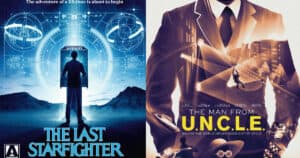
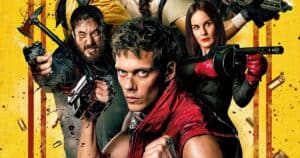
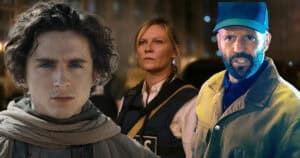
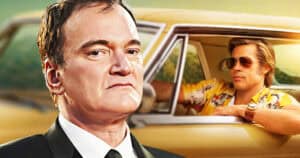
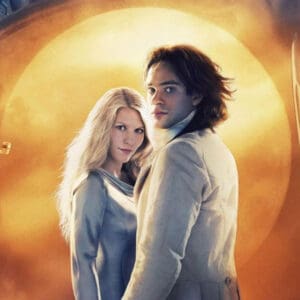


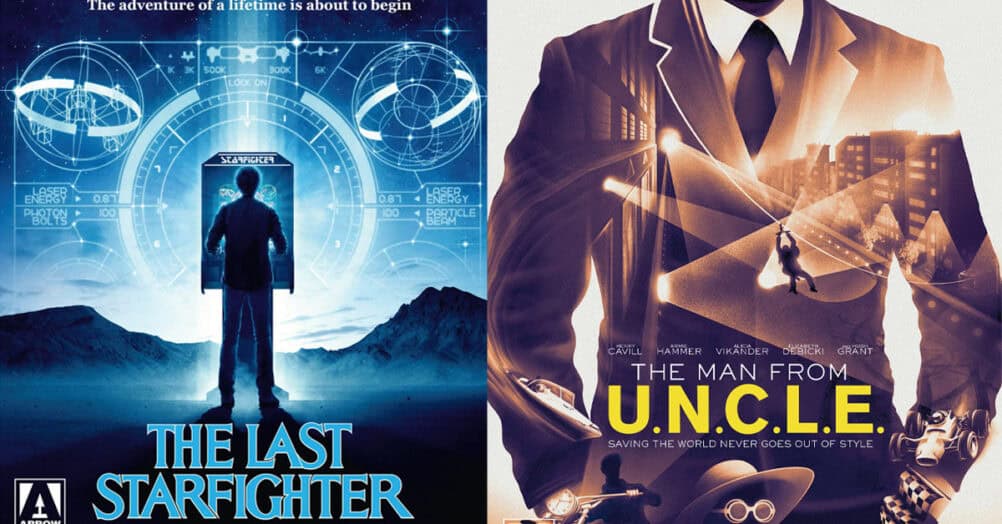
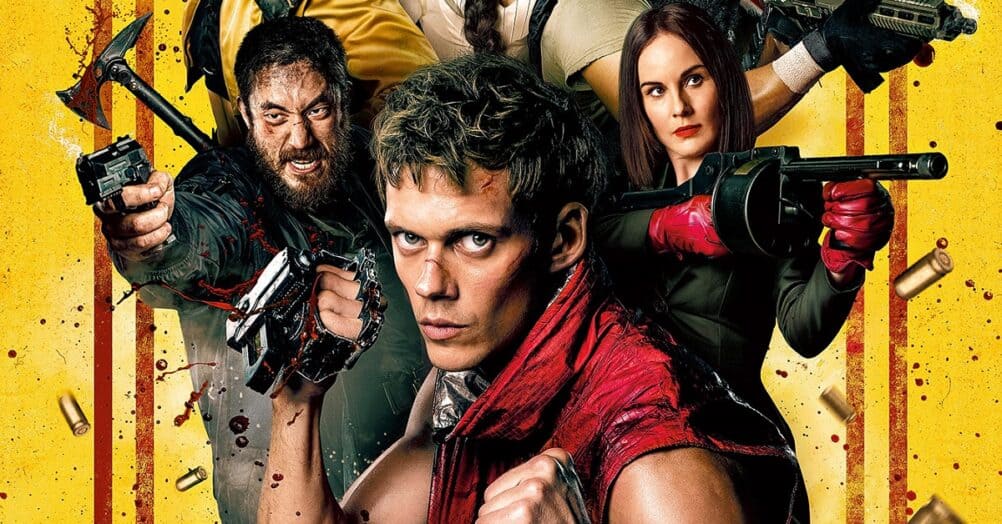
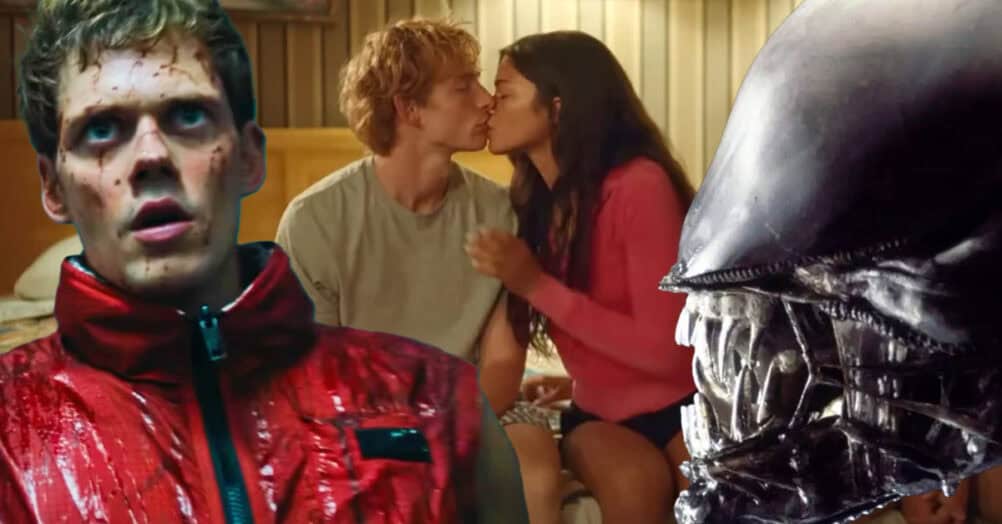
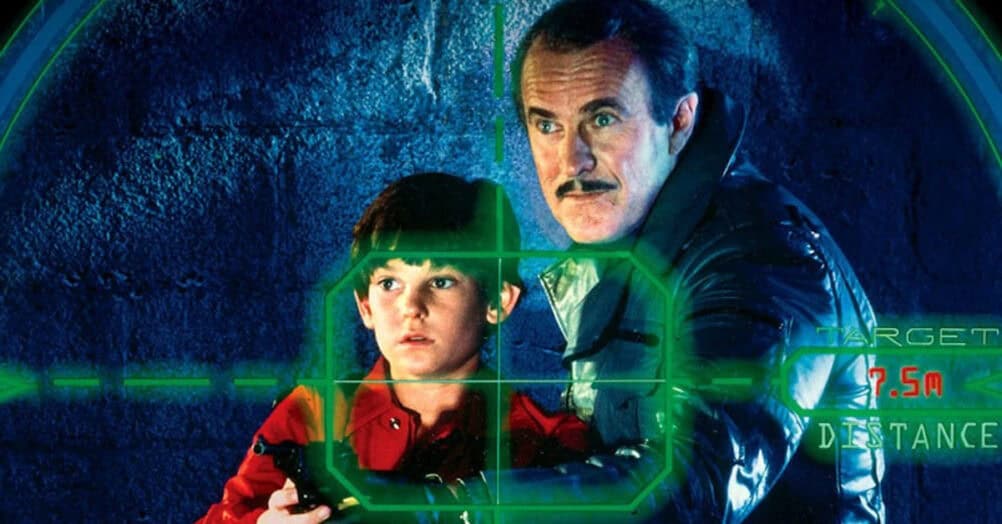
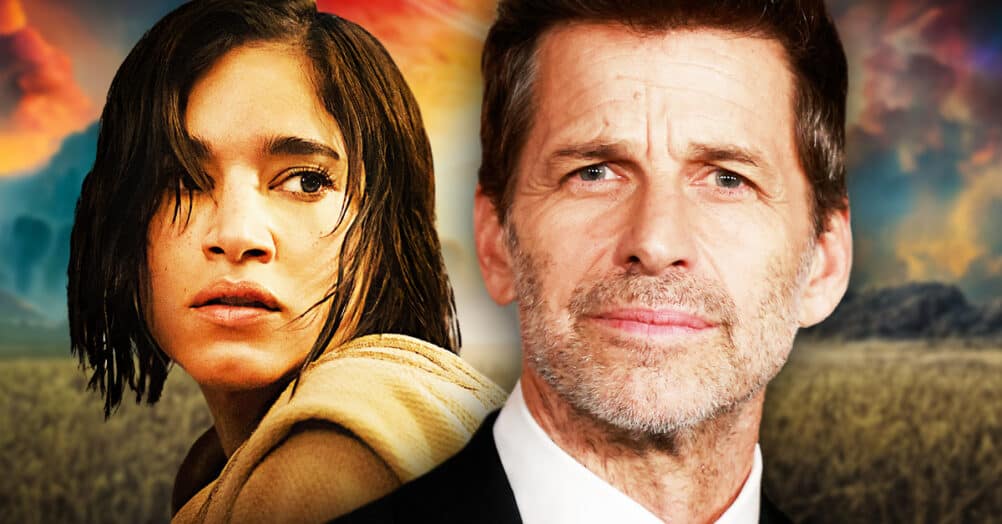
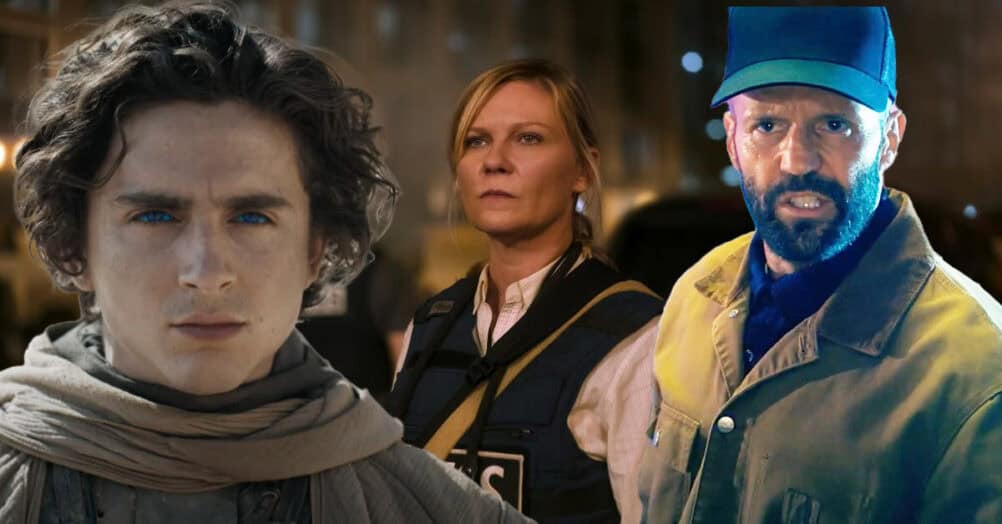
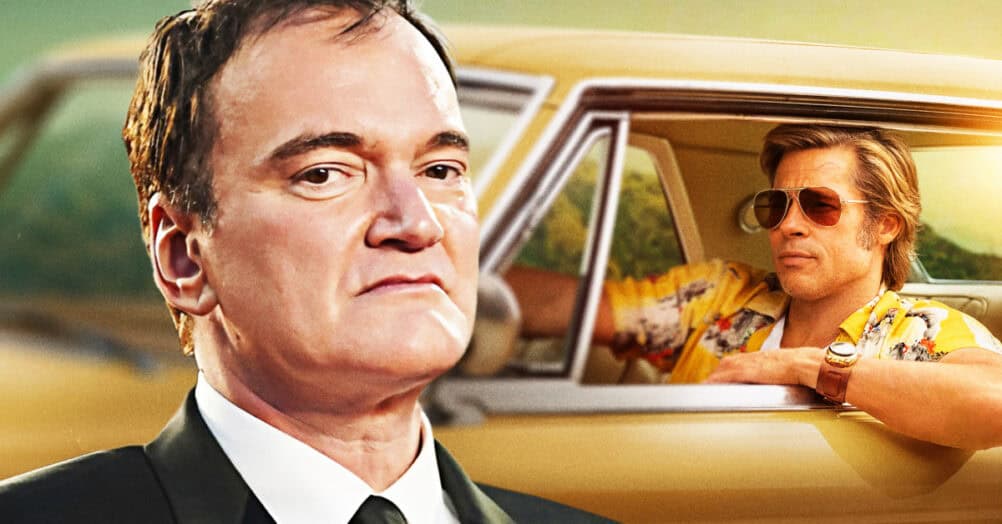
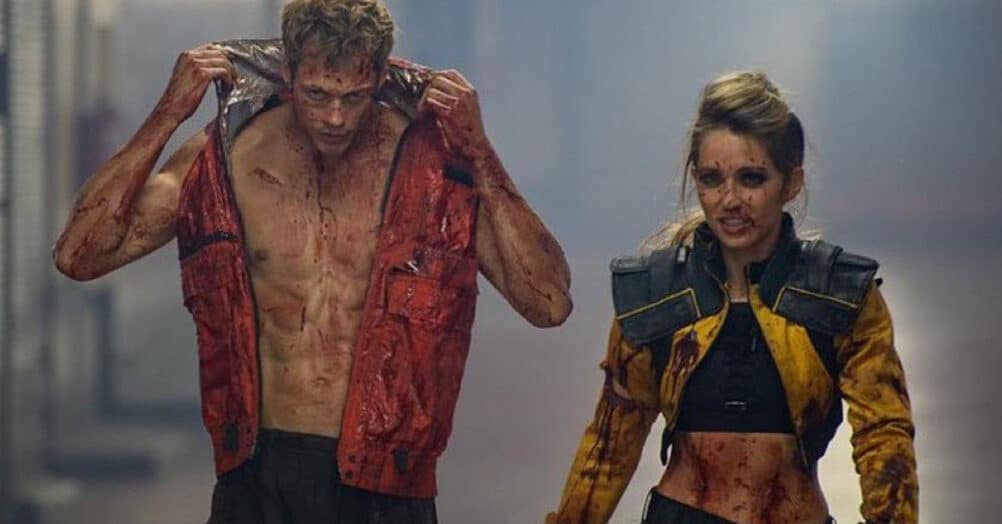
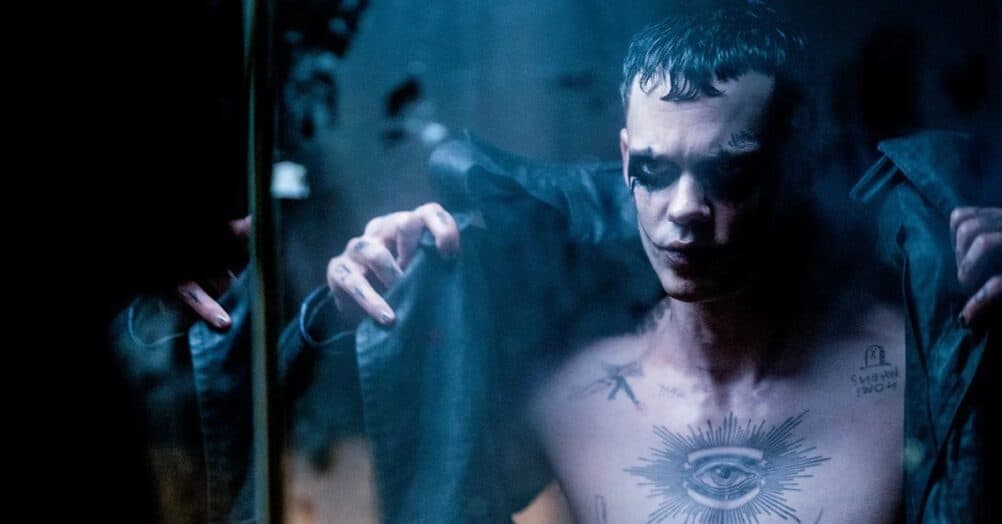
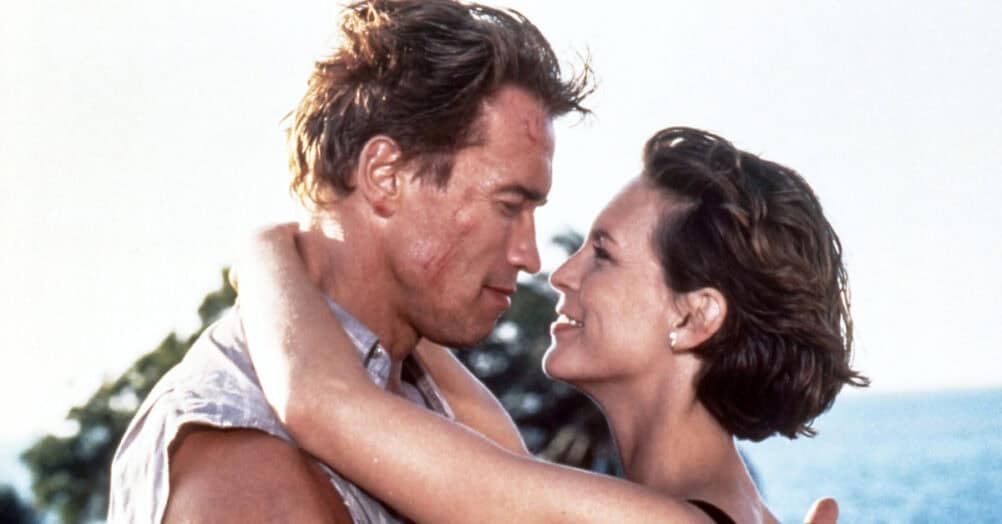
Follow the JOBLO MOVIE NETWORK
Follow us on YOUTUBE
Follow ARROW IN THE HEAD
Follow AITH on YOUTUBE